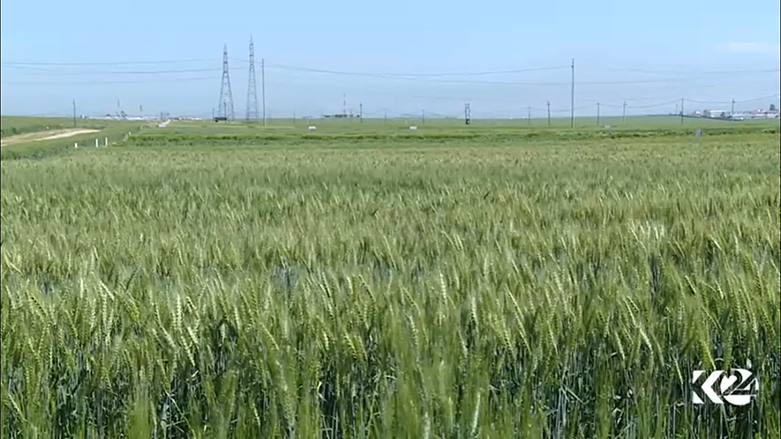Agriculture boosts despite payment dispute with Baghdad

ERBIL, Kurdistan Region (Kurdistan24) – Farmers in the Kurdistan Region are using 3,100,000 hectares of land to boost agriculture this year.
Anwar Omer, the spokesperson of the Kurdistan Regional Government’s (KRG) Ministry of Agriculture and Water Resources (MAWR), told Kurdistan24 that the region "used to have one million and 737 thousand hectares but now we have three million and 100 thousand hectares."
According to Omer, crop production is also expected to increase to nearly one million ton. Thus, Kurdistan will be self-sufficient because the region needs 600,000 tons of crops.
The Iraqi government cut the Kurdistan Region’s budget and the employees’ salaries. In addition, the government owes 745 billion 950 million IQD to Kurdistan farmers. Farmers are skeptical about delivering their crops to the Iraqi government again.
Therefore, Omer says that the KRG has plans to purchase agricultural products from the farmers directly and export it independently. “Starting from 2017, in coordination with the private sector, we will start buying crops from farmers until 2020. After that the private sector will fully manage the process,” he added.
The MAWR plans to improve the agriculture sector which used to be the main source of income in the Kurdistan Region. According to the Minister of Agriculture, Abdulstar Majid, now only 16 percent of people of Kurdistan are farmers, compared to 67 percent before 2003.
Majid spoke at the Middle East Research Institute’s (MERI) Economic Forum on Wednesday, stating that “We have introduced a tax system that would allow local agricultural products to increase.”
"In the past years, Kurdistan had become a market for Iranian and Turkish products, but after introducing the tax system, products from Turkey decreased by 26 percent, and Iranian products decreased even more,” Majid added.
Reporting by Baxtiyar Goran
Editing by Ava Homa
